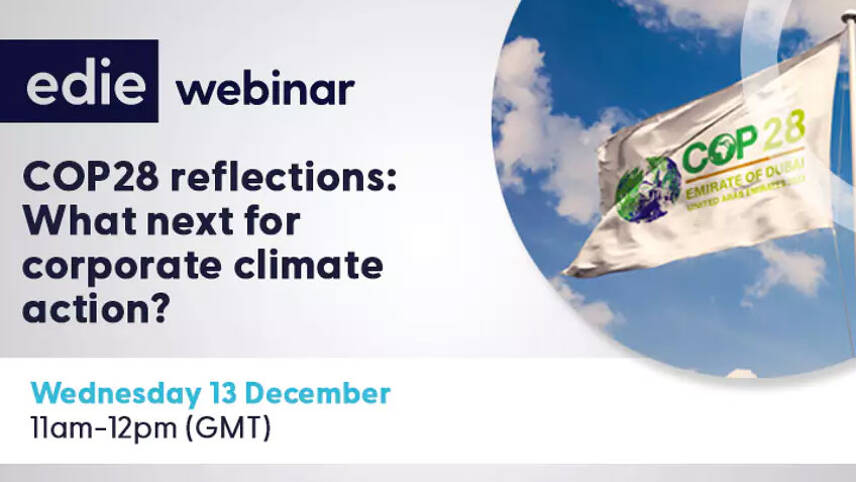Register for free and continue reading
Join our growing army of changemakers and get unlimited access to our premium content

The webinar originally took place from 11am – 12pm GMT on 13 December and delivered a thought-provoking panel discussion featuring a variety of corporate climate leaders and NGOs, to summarise what happened at COP and what it means moving forward.
COP28 took place in Dubai from 30 November and closed in the early hours of 13 December, almost a day behind schedule.
More than 100,000 delegates registered to attend the summit, which is regarded a potential tipping point for climate action.
COP28 is focused on transition from ambition to action, with a dedicated Action Agenda set up to act as a framework for global negotiations for politicians and world leaders. That’s not to say that COP28 won’t have implications for businesses – quite the opposite in fact.
With the dust still settling on discussions in the UAE, this webinar convened sustainability leaders and climate experts to share their thoughts on whether COP28 was a success and what, if anything, has change for corporate climate action.
CLICK HERE TO WATCH THIS WEBINAR ON DEMAND
Full details of the session are as follows:
11:00-12:00 The Big COP28 Q&A: What’s next for corporate climate action?
Matt Mace, content editor, edie, chair
Shami Nissan, head of sustainability, Actis
Uzma Sulaiman, Associate Director, Community Jameel
- Was COP28 a success?
- Looking ahead to 2024: What are the corporate priorities?
- How can businesses advocate and lobby for ambitious climate action and policies?





If fossil fuel is to be reduced, it will have to have a replacement in its’ energy generation.
Nuclear energy in this country could be increased some threefold (at present levels of installation).
But it is very expensive to build. Let us not forget that the industry was founded on Treasury funds.
Then there is the question of mobile energy in transport. this demands scarce materials for batteries. Is it recycled efficiently at the moment? Certainly it will have to be, not of lot of lithium and cobalt about for such exercises.
I have not heard of these problems being addressed at HMG level, but I am no longer in the swim at 92!